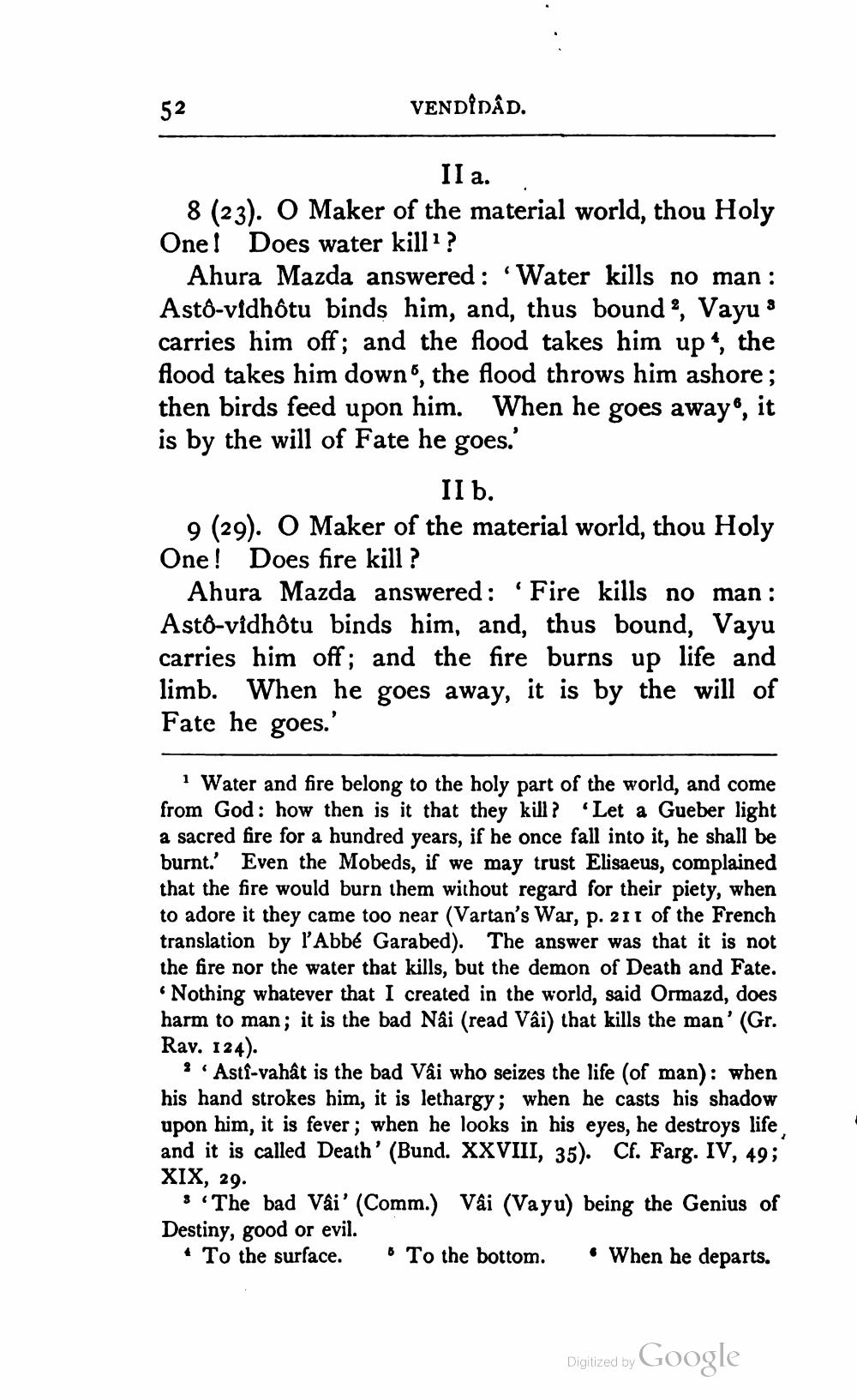________________
52
VENDIDAD.
II a. 8 (23). O Maker of the material world, thou Holy One! Does water kill 1 ?
Ahura Mazda answered: “Water kills no man: Astô-vidhôtu binds him, and, thus bound, Vayu : carries him off; and the flood takes him up 4, the flood takes him down”, the flood throws him ashore; then birds feed upon him. When he goes away, it is by the will of Fate he goes.'
II b.
9 (29). O Maker of the material world, thou Holy One! Does fire kill ?
Ahura Mazda answered: 'Fire kills no man: Astô-vidhôtu binds him, and, thus bound, Vayu carries him off; and the fire burns up life and limb. When he goes away, it is by the will of Fate he goes.'
1 Water and fire belong to the holy part of the world, and come from God: how then is it that they kill? Let a Gueber light a sacred fire for a hundred years, if he once fall into it, he shall be burnt. Even the Mobeds, if we may trust Elisaeus, complained that the fire would burn them without regard for their piety, when to adore it they came too near (Vartan's War, p. 211 of the French translation by l'Abbé Garabed). The answer was that it is not the fire nor the water that kills, but the demon of Death and Fate.
Nothing whatever that I created in the world, said Ormazd, does harm to man; it is the bad Nai (read Vai) that kills the man' (Gr. Rav. 124).
3. Astf-vahật is the bad Vai who seizes the life (of man): when his hand strokes him, it is lethargy; when he casts his shadow upon him, it is fever; when he looks in his eyes, he destroys life and it is called Death' (Bund. XXVIII, 35). Cf. Farg. IV, 49; XIX, 29.
s "The bad Vai' (Comm.) Vai (Vayu) being the Genius of Destiny, good or evil.
• To the surface. To the bottom. When he departs.
Digitized by
Digitized by Google




